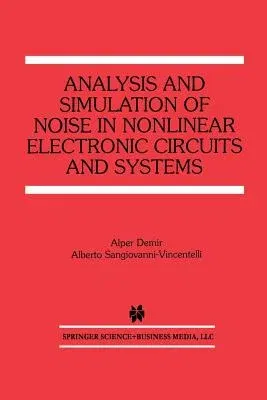Alper Demir
(Author)Analysis and Simulation of Noise in Nonlinear Electronic Circuits and Systems (1998)Paperback - 1998, 2 November 2012

Qty
1
Turbo
Ships in 2 - 3 days
In Stock
Free Delivery
Cash on Delivery
15 Days
Free Returns
Secure Checkout
Part of Series
The Springer International Engineering and Computer Science
Part of Series
Springer International Series in Engineering and Computer Sc
Print Length
275 pages
Language
English
Publisher
Springer
Date Published
2 Nov 2012
ISBN-10
1461377773
ISBN-13
9781461377771
Description
Product Details
Book Edition:
1998
Book Format:
Paperback
Country of Origin:
NL
Date Published:
2 November 2012
Dimensions:
23.39 x
15.6 x
1.52 cm
ISBN-10:
1461377773
ISBN-13:
9781461377771
Language:
English
Location:
New York, NY
Pages:
275
Publisher:
Series:
Weight:
408.23 gm

